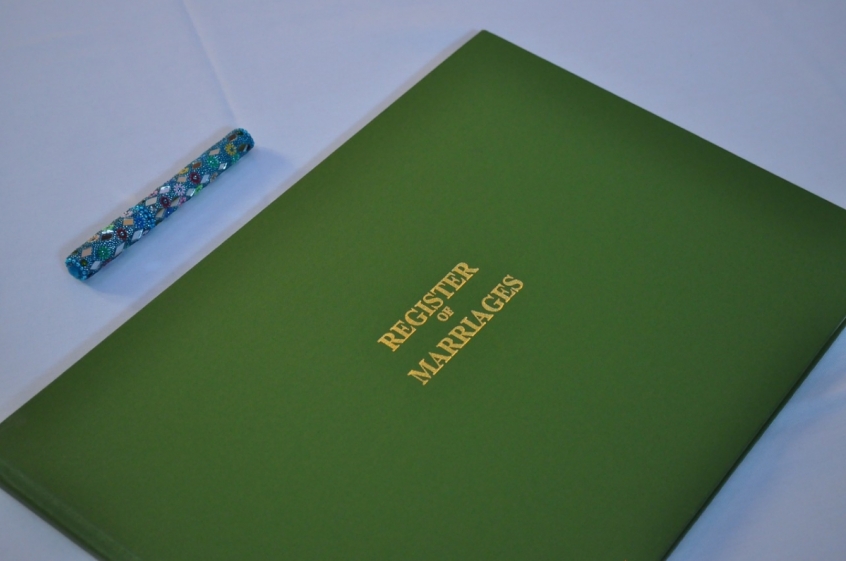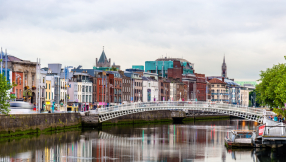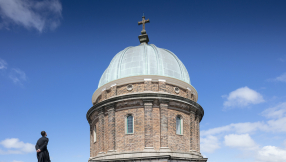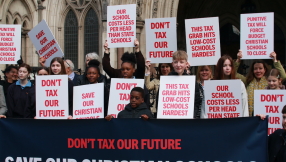Today's Budget will outline plans for couples to be able to legally marry in a wider variety of venues. The fact that this is in the Budget serves as a healthy reminder that for much of British history the legal institution of marriage has been a lot about money and power. For a fair while women were seen as chattels (as they remain in some parts of our diverse world). My own employer (the Church of England) is the child of an upsurge in new theology and the very practical desire of a king to increase his security and power. All of this came together in a fight about marriage and the emergence of a state church.

In our material culture most do not marry for money, but marriage has money implications. At an average of £30,000 a time, marriage is a significant industry. Philip Hammond's proposals, allowing for civil ceremonies to be held outside and so on, are a 'sort of' attempt at reducing those costs. As a cynic I suggest that they are a sop to the couples who simply want their event to be more unique and Instagrammable than their friends'. However, on paper, they open up the possibility of couples being able to marry without prohibitive venue costs.
Some may argue that in such a world, the church needs to hold and hold fast to a 'traditional' or 'biblical' view of marriage, with ceremonies in sacred spaces that mix joy and solemnity, character and covenant. I feel duty bound to remind us that in the Bible most marriages were political, polygamous or both and that most of the New Testament either modelled single life (Jesus) or encouraged it for the sake of the Gospel.
I'm not here to undermine marriage. I believe that we have a gift to bring to committed relationships in helping couples to love beyond comfort. Our role in preparation shouldn't be underestimated. Church ceremonies themselves remain, at their best, an opportunity to remind each other of God's committed, infinite and abounding grace and love that is to be played out in all of our relationships. And I am aware that for many churches and clergy they are a glorious and unrivalled opportunity to share the gospel and build relationships back into church.
None of this, however, requires us to do the 'legal bit'.
In fact, I want to argue that if we were really interested in being biblical we would get out of the legalities. When we read all of Scripture we discover that God has a very particular place for the poor, the widow, the orphan and the alien. Jesus's own parents used the 'budget' option at his dedication. Later Jesus would eject from the Temple those who tried to charge the poor for what should have been free.
The current legalities around marriage in the church work contrary to that. Poorer people are priced out of church marriage because the legal bit costs money. Many of us will think that the £500 (ish) that it costs to get married in church is nothing, but 40 per cent of us have less than £100 in savings. That £500 figure also assumes that the couple getting married both live in one parish, have a passport and are conveniently British. For couples outside of the EEA, couples without a passport and couples who for whatever reason don't have the right documents, the issues and the costs mount up. While we all want to be alert for the abuse that comes with sham marriage, many of us are deeply uncomfortable about being seconded to do the Home Office's work.
I'm also not alone in feeling deeply uncomfortable that when those hurdles are crossed we don't really have any way to say no to the marriage, even if it is obviously an unhealthy match. The legalities mean that if the right boxes are ticked (literally in the case of couples trying to establish a qualifying connection), pastoral concerns can only delay, not refuse the match.
All of this is solved if we, as the national church, humbly say no. If we choose to relinquish the right to the legal power to marry then perhaps we might open the door for a truly equitable certification of marriage, done in an office, for just an admin fee. It would leave the bureaucrats to be bureaucratic according to the latest whim of migration or monetary policy. And then perhaps we might be free to do what the church does best – to guide, to counsel and to suggest what self-giving love and commitment might look like.
We might once again be able to offer support to couples who choose to seek God's involvement and blessing with integrity, not gritted teeth. We would be able to talk more about the covenant bond that people are making before God – and what that might look like through the course of a lifetime. And we might be able to offer it freely, to the poor, to the alien, to the widow and to the orphan.
Rev Jude Smith is the team rector of Moor Allerton and Shadwell in North Leeds. Follow her on Twitter @gingervicar













